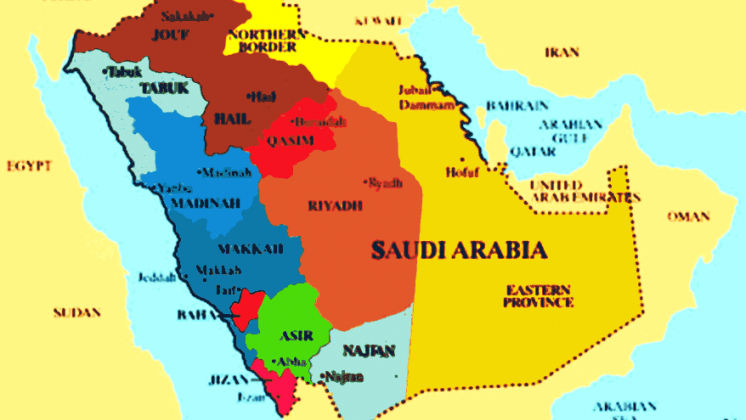Islam and its Saudi perversion
Martin Luther King had a tendency that in essence separated him in character from his more radical and in certain aspects more charismatic black activist in Malcolm X. Malcolm believed that the virtuous belief in “peace through peace” and “coexistence at all costs” were a rhetoric that the oppressed black minority of the US could no longer afford to keep. But there is one area where MLK has withstood the test of time against Malcolm. The idea that the focus of a movement calling for emancipation of one minority could not be limited to that particular minority only. In other words, the sheep cannot hope to live a hearty life until a single wolf lives. In one of his iconic addresses to the nation claimed that, “Injustice anywhere is a threat to justice everywhere”. A statement that stands tantamount to that reality.
Saudi Arabia would certainly top or be in one of the top countries that would pop in anyone’s mind when social injustices and barbarity taking its roots in official state policy is taken into consideration.
It is a country stranded in time, in an era when the concept of jail itself as punishment is being questioned in the civilized world, Saudi Arabia routinely executes its citizens for crimes as asinine as homosexuality, public lewd behavior, atheism and in case of women, for being raped. But that’s a topic for another time.
The issue at hand is a humanitarian concern that involves the ongoing bombing of Yemen by a Saudi-led coalition. A crisis that began back in March, 2015 when President Abdu Rabu Mansour Hadi requested support in the form of military intervention after being ousted by the Houthis in January. Though being banished, a majority of countries with diplomatic ties to Yemen still recognize him as the legitimate leader of Yemen. And so a military confrontation has raged on since then, where the US continues to provide “logistical and intelligence support” and equipment worth billions being sold to Saudi Arabia by many western nations, drawing criticism from human rights groups worldwide citing the reality tht these billions of dollars’ worth arms will be used to target civilians in key strategic areas of Yemen. The Houthis for most part have proven as stubborn adversaries, in the southern port city of Aden, pro-Hadi forces have suffered major losses.
It would not take an expert of international humanitarian law to understand that there are certain decencies that must be observed in war. The expression “everything is fair in love and war” is only true to its former part, the latter is to be curbed. Not everything is fair in war. Certainly not the blockade of essential medical supplies to the civilian areas, basic necessities such as food and fresh water to these areas and certainly not the ruthless and unmitigated bombardment of these civilian areas. Reports have regularly emerged that the Saudi-led coalition has beleaguered innocuous targets such as funeral processions, weddings and even schools. The age old tactic of drawing out belligerents through the targeted causalities to civilians has spectacularly failed if that indeed was the strategy. The Houthis continue to have a strong presence in the country’s capital Sanaa. A twist in the tale, of sorts, was them receiving financial, political and military support from Saudi Arabia’s counter weigh in the region, Iran though the Houthis still claim to operate as an independent force.
Although many have questioned how Saudi Arabia has been allowed to get away with so many clear and aggressive violations of the Geneva Conventions of 1949, there are certain laws that concern international and non-international conflicts. For this particular episode to qualify as an international conflict, the Houthis would need international recognition of statehood. This is where they fall short, and this is where the Saudi rhetoric of justifying military action against them as “aiding a fellow Arab neighbor in rooting out a rebel militant outfit” carries significance.
Though a spectacular debate seems to have erupted about whether the Saudi action fall in line with what Islam preaches, many seem to agree that such a conflation would lead to the unilateral agreement that in no way does Islam allow any party to carry out the tactics currently being used by the Saudi camp.










